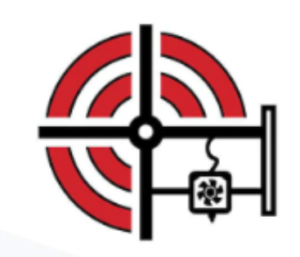A North Texas team is using 3D printing to make smaller, low-cost Narcan vending machines, helping more communities get access to a medication that can reverse opioid overdoses and save lives.
The initiative comes from Conscience Conduit, led by Anthony Delabano, in partnership with 501(c)(3) non-profit Livegy and other local organizations. The group introduced the region’s first free Narcan vending machines in 2024 and is now rolling out new 3D printed wall-mounted dispensers that can hold up to 70 doses each. The goal is to make lifesaving medication easier to find, faster to install, and more affordable to distribute.

Anthony Delabano and one of the free Narcan dispensers. Image courtesy of Conscience Conduit.
Delabano, a Dallas-area advocate for overdose prevention and co-founder of Conscience Conduit, helped design the smaller dispensers to remove economic and logistical barriers to getting Narcan into public spaces. For the cost of a single large electronic vending machine, he says, the team can place around 50 3D printed versions in schools, libraries, shelters, or community centers.
Each dispenser is lightweight, durable, and easy to mount, and 3D printing keeps costs low and allows them to produce the machines when needed. The smaller machines help reach more communities, so Narcan isn’t limited to city centers.
Narcan, also known by its generic name naloxone, is a medication that can reverse the effects of an opioid overdose within minutes. It works by blocking opioids like fentanyl or heroin from affecting the brain and helps restore normal breathing. The nasal spray is safe, easy to use, and has become a key tool in saving lives during the opioid crisis.

One of the 3D printed Narcan dispensers at the Band Crawl Against Fentanyl event. Image courtesy of Livegy.
Delabano and his team point out that access is only one part of their mission and that education is just as important. Each Narcan pack includes a QR code sticker linking to overdose-response training, mental health resources, and recovery programs.
“Many people don’t realize that fentanyl overdoses are now the leading cause of death for people aged 18 to 45 — above even cancer,” the group said in a statement posted to its official Facebook page. “This is about preventing deaths through awareness, training, and access.”
Over the past year, data from nearly 330 QR scans of the group’s educational “help stickers” showed that 87.5% of users were looking for resources or training, not emergency use. That, they say, shows that more people are learning how to help before a crisis happens.

Volunteers show Narcan dispensers at the Band Crawl Against Fentanyl event. Image courtesy of Livegy.
Conscience Conduit works with professionals, including Dr. Marshal Isaacs, Medical Director of the Dallas Fire‑Rescue Department, and Chris Chiara, Chief of the Dallas Fire-Rescue EMS. They have helped the team improve training and tracking so the program measures both quick saves and lasting community impact.
Delabano, who has spoken publicly about his own experiences with addiction and recovery, says that personal history drives his work.
He told CBS News, “We’ve lost too many people. This is one way to make sure help is always within reach.”
Subscribe to Our Email Newsletter
Stay up-to-date on all the latest news from the 3D printing industry and receive information and offers from third party vendors.




